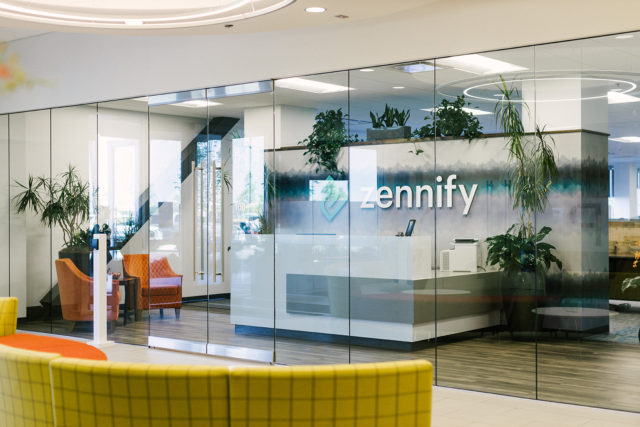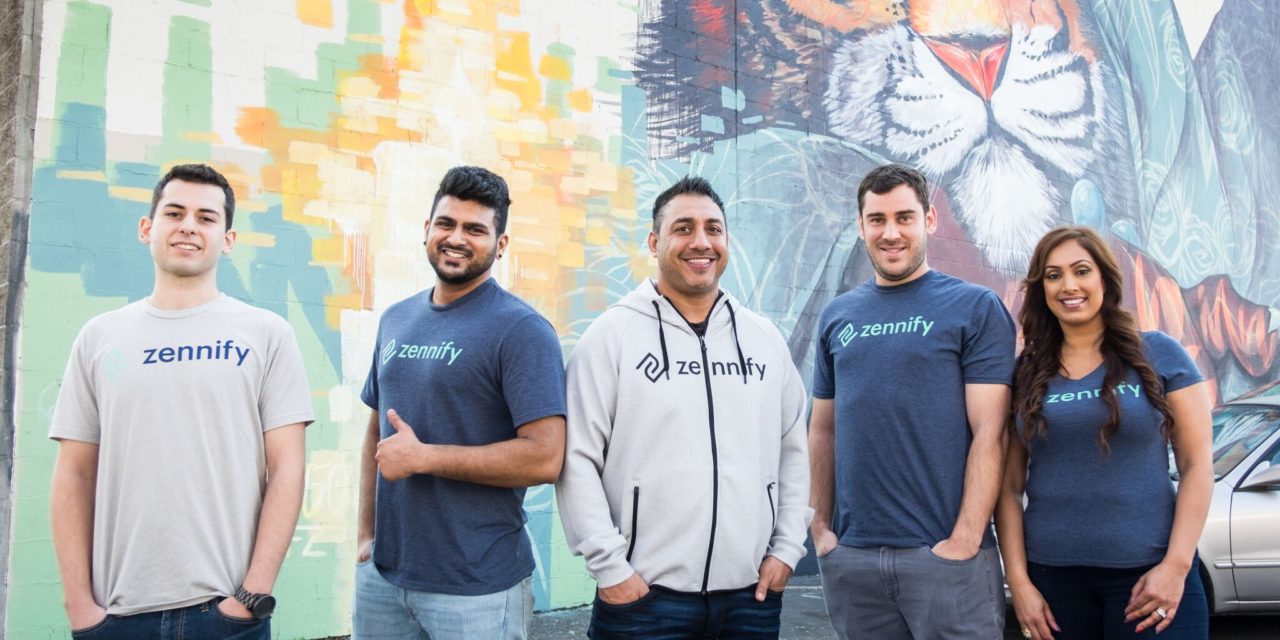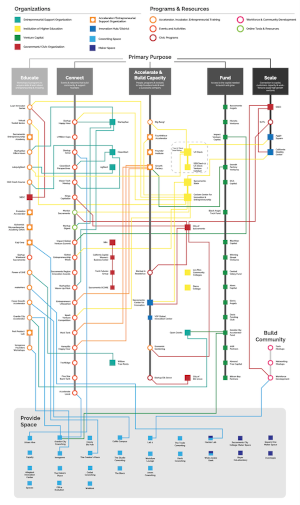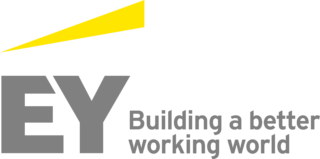I first met Zennify CEO Manvir Sandhu as I sat next to him at a Greater Sacramento Economic Council event. At the time, I was only vaguely aware of this local startup. As we chatted, I was initially struck by how amiable, approachable, and down to earth Manvir is. I invited him to be the guest entrepreneur at one of our Startup Happy Hour events and came away even more impressed. Manvir’s authenticity and commitment to develop a great culture at Zennify along with his success in leading one of Sacramento’s fast-growing startups show why he was selected as one of the Sacramento Business Journal’s most admired CEOs in 2021. I recently had the opportunity to interview Manvir. Check out the interview below.
Let’s start out by having you introduce yourself and telling people about your startup. What does Zennify do and what’s the origin story of Zennify?
Zennify is an expert and technical consultant in digital transformation. A lot of organizations are going through a challenge right now and have to rethink how they are doing business, and technology is playing a really critical role. Many of these organizations have constraints around the technology they have in place, as well as the resources and talent to manage that technology staff. They need organizations like ours to help them not only visualize and roadmap what’s possible, but also to help them execute. Zennify helps with both the consulting and the execution. We can get an organization from point A to point B successfully, and not just advise them, but be their partner on the journey.
Zennify’s founders, Nathan Mueller, Jesse Barker and myself were CRM specialists and have been working in tech for 20 years. We built a passion for the latest and greatest technologies while working at Hewlett-Packard. At the time, Hewlett-Packard didn’t have the latest technologies that other companies did, so we were drawn to innovation and eventually left to start our own company.
Technology was always at the heart of Zennify’s founding. We believe that by leveraging the right technology, including Salesforce, you can solve any major challenge in the world. We’re technologists at heart and, fortunately, technology is better than it’s ever been. You can solve pretty much anything with the technology that we have today, which is very powerful. When you are confident about the technology, you can listen to the problem and come up with a solution that is scalable and can actually get done. Whereas in the past, while there was technology, it wasn’t always as affordable or accessible as it is now.
Greater Sacramento played a role in getting Zennify rooted in Sacramento. How has the Sacramento community helped Zennify grow and succeed and become one of the fastest growing tech startups in the region?
Sacramento was top of mind for Zennify because I already lived here, but when you’re evaluating cities to launch your startup, you have to take a lot of strategic components into account. How do I get connected to talent and local business leaders? Are there any incubators? What are the office space options? We looked at a few other cities, but Sacramento exceeded all the expectations above all the other cities.
I reached out to the Greater Sacramento Economic Council and they were very responsive. They made immediate connections for me. They connected me to Sacramento State University’s computer science department, for example, where a lot of our talent comes from. They also connected me with commercial real estate experts to help me understand the office environment and got me into an incubator space.
The main criteria for choosing a city for Zennify was the ease of doing business and scaling, and the talent. The talent we’ve found here is best in class, and they’ve been instrumental to our growth and innovation.
Covid-19 has been an extreme challenge for small businesses and startups. Yet, despite these challenges, you managed to grow the company by 30% and even hire while many were laying off. What are the strategies you’ve used to see this growth and success?
Early on in the pandemic, as businesses began to shut down their brick-and-mortar locations, freeze their budgets, and send employees to work from home, many companies realized that their tech was not sufficient to help them engage in this new way.
So there was this realization for companies that not only do we need to unfreeze our budgets, but we have to expand the budget and leverage the pandemic to get the business done and transform their technology. Many organizations had this mindset of, if I’m going to take a hit, I might as well prove that I’m getting something done.
Everything aligned and that’s essentially how Zennify grew. We fortunately didn’t have any layoffs because we had the talent and the work. The government also supported with the PPP loan for businesses like us.
We had you as a guest at one of our Happy Hour events last February just before the world shut down. At that event, the attendees were all impressed with your authenticity and your commitment to develop a great culture at Zennify. How integral has culture been to your success and why do you feel that company culture is so important?
It starts with understanding who the people are as human beings, outside of work. Who is the leadership team? Who are the employees? What are their values? What do they care about? We’ve always been very transparent about who we are as individuals; how we started the company as a nonprofit to use technology to make an impact. When you’re transparent about your company values, you’re going to attract people with those same values.
If one of your company values is to embrace equality, for example, then the people you attract will also care about those things. And when you care about similar things, that means you have some commonality in the DNA of the company — that is the foundation for culture.
Passion is another value of Zennify’s. Not only passion for technology, but passion for the things that we care about. Whether it was the pandemic or the California wildfires or the crisis in Haiti, we cared about the future and we cared about solving problems and leveraging our skills to make a difference in the world.
It’s important to us that our employees enjoy their time and experience at work. We’re all connected and that is what culture is all about.
You have focused on digital upskilling, working with several organizations like Code Black Indy, General Assembly, and Greater Sacramento Economic Council to hire a diverse workforce and provide opportunities for non-traditional job candidates to get hired for entry-level jobs in IT, user experience design, data analytics, and program management. How has that experience been and how can other tech startups get involved with programs like this?
The experience has been wonderful. Creating opportunities for people who might not necessarily have the opportunity, has been the most rewarding part of this job.
If you look at a lot of the employees at Zennify, we don’t come from traditional backgrounds. Some of our best technical architects don’t come from traditional technology backgrounds, even some of the founders don’t come from a college degree background.
What’s happening is technology is disrupting many things. It’s creating opportunities for individuals to transform their careers without the traditional education background. All they need is a platform. Programs like the Greater Sacramento Urban League and Greater Sacramento Economic Council have pitched in to fund the initial skills and technical training that these individuals need, and they’ve helped identify those candidates for us.
If this is an initiative you want to take at your company, you have to open up your mind to these kinds of candidates. You have to embrace what they offer and trust that these candidates are as strong as those with traditional backgrounds, but you also need to have the infrastructure to get them to the next level.
What’s next for Zennify?
Technology continues to evolve and get better, and we want to be proactive in that journey. We want to create our own technology, IP, and solutions that identify Zennify as a solution. We want to connect the emerging technology to core technology and help our clients through those journeys. You hear a lot of buzzwords like blockchain and AI, and those are great concepts, but somebody has to be a trusted advisor and an expert in those different concepts and get them to integrate together to solve a problem. and connect them to core technology.
The future for Zennify is to continue doing what we’re doing, but also evolve with the technology and get more advanced.
We also want to strategically expand into more industries. We started as an organization in the health and life science space, but over time we’ve really developed expertise and trust in the financial services industry.
Research shows that startups and small businesses account for most net new jobs in the economy and Zennify’s job creation is certainly evidence of that. Any thoughts on what we as a region can do to catalyze more successful businesses like Zennify?
One of the major challenges for a startup is funding. The region has to have the connectivity to funding sources such as incubators and organizations that are doing things to support a small company that’s just starting up and making sure they still have a shot in the game. You need angel investors and people who are willing to write smaller checks that might have more risk.
Once a startup gets the money, they need to know how to get that dollar to stretch. The region needs to be able to network and recommend ways a company can save money, such as working from an incubator space. It’s hard for a startup to sign a five-year lease early on. They need the flexibility.
Another big challenge right now is inflation. Costs are going up, and this includes the cost of talent. This is especially hard for startups. Startups need to be creative in the type of people that you can hire, which may not be your traditional candidates.
Do you have any words of advice, inspiration, or encouragement for aspiring entrepreneurs out there?
My number one tip is to know your financials. And you don’t need a CFO to understand your numbers. Get comfortable in that Google Sheet and start to really understand your business from a financial perspective as early as possible.
Don’t be shy about connecting with resources like Startup Sac or the Greater Sacramento Economic Council that are there to help. There are support systems in place. Don’t be prideful about getting the help. It can be hard early on but you have to keep putting yourself out there. You’re going to get a lot of rejections, but you have to persevere and be resilient.
Lastly, you need to be able to prove your concept early and often. People have great concepts, but the challenge with concepts is that you have to prove that it works. And the only way to prove it is to show that people are adopting what you have to offer. Or if you have customers that become repeat customers and are coming back over and over and you’re growing your customer base. Your financials may not look great, but if you can prove that the product or service you’re providing is working, that’s what investors like to see.














